Return to Part 1: Dumpster Diving
Continued from Part 18: Run Away and Join the Circus
Given the the company's current focus, the name Hyperion Entertainment seems an odd fit for the modern maintainer of AmigaOS, betraying its earlier status as an Amiga focused video game porting house. Attracted by the apparent success of Loki Software, Hyperion Entertainment also decided to expand into the Linux market, porting three games to the platform. One of their ports, that of SiN, to this day remains from them an elusive Linux exclusive.
Being given only a limited physical release in Europe, the Linux version of SiN is almost impossible to find today, so I would like to thank Nickolas Grigoriadis for supplying me with a copy. First developed by Ritual Entertainment for release in 1998 SiN is an ambitious if adolescent first person shooter with pretensions towards being an immersive sim, with level design that allows for a number of branching paths and a great degree of interactivity.
Adolescent applying to both the content of SiN, with its ridiculous comic book plot carried by the bosom of its femme fatale antagonist, and to how well baked the final product is. Notorious for its bugs SiN can also just feel a bit of a mess, being a headache for completionists with its multiple conflicting objectives. SiN plays more as an overwrought Duke Nukem 3D than something like Deus Ex, perhaps unsurprising given the input from the likes of Richard Grey and Charlie Wiederhold.
When the ingredients are fully cooked the game can be compelling, but you have to take the rough with the smooth. This also applies to the quality of the Linux port, with it being mercurial to get working. When I first installed the SiN demo on Red Hat Linux 7.3 it refused to recognize my libGL.so library, but in the year or so since it started working without a hitch. This carried over to when I installed the full version, but I still have no firm idea as to what changed.
SiN also has the most obnoxious retail key and disc checks of any Linux game I have encountered, with it just kicking you to the desktop with an stderr message when starting a new game if the CD-ROM is not mounted. Given how often the game crashed this did not fill me with confidence. In addition, I found that audio clips would cut each other off and would at times be distorted, with the worst offender for this being at the end of the optional "Missile Silo" level.
How much these problems had to do with the Linux port or the nature of SiN itself remains unclear, although I suspect it to be a combination of both. I found myself stuck for a time in that same level as it is the only instance in the whole campaign where the unadvertised inventory screen, accessible with the F11 key, is required in order to progress. SiN develops a habit of putting hurdles in your way, as an even more significant roadblock would arise from my going off the beaten path.
Since I had opted to destroy all the pumps in the optional "Geothermal Plant" level, this breaks the scripting when you are forced to go through the "Biomass Reclamation Center" later in the game, causing Darwin Chamber 3 in "Area 57" not to be accessible. Thankfully a fan patch exists to fix this specific issue, as otherwise I would have been forced to cheat, or load up a previous save and use the alternative path through the "Hidden Docks" instead.
This was followed by the next level "Xenomorphic Laboratory" producing broken save files, but once I got past this things proceeded fine up until the penultimate "Munt Phoenix" level. Here the scripting broke again, with the enemies standing stock still instead of attacking me, and mission critical items not spawning in. This I could resolve by just restarting the level, letting me go on to defeat the final boss, although the final MPEG cutscene aborted after a few seconds.
Performance wise Windows 98 averaged 40.7 FPS compared to 33.1 FPS under Linux using High settings, with both versions benefiting from turning Tessellation and Dynamic Lighting off. Doing so brought the Linux average up to 37.3 FPS, although this was still dwarfed by the 51.2 FPS seen on Windows 98 with the same settings. Windows benefits too by having access to the more polished Wages of Sin mission pack, which sadly was never ported over to Linux.
SiN would also later be adapted into an animated film, the inverse of what gave us the software I am to cover next. Plenty of games released for Linux could be considered adolescent or even childish, but software designed with actual children in mind can be few and far between, at least in the commercial or retail space. Time for some family friendly entertainment, even if I do come away from the experience questioning the sincerity of the publisher's intentions.
Carrying on in Part 20: The Antediluvian World
Return to Part 1: Dumpster Diving
https://www.gog.com/forum/sin_gold/fix_area_57biomass_reclamation_center_locked_darwin_chamber_3_bug_fix
A review of the game by Matt Matthews for Linux Games is archived here:
https://web.archive.org/web/20030219214553/www.linuxgames.com/?dataloc=/reviews/sin/
And my raw SiN timedemo data can be found here:
https://icculus.org/~hamish/dianoga/sin-timedemos.txt
Trying with the SDL 1->2 shim, maybe that's the problem.
Segfaults on starting a new game (or sooner..) smpeg is suspect, but Loki compat isn't so compat these days (outdated as well).
The game is damn near-revolutionary. Starts out kinda slow tho. It's certainly more than it seems on the surface.
I must say I'm surprised I didn't hear of the next title before (I think I found the right one searching the interwebs) but that's always welcome.It pays to sift through eBay listings sometimes.
I have another four articles pretty much drafted so I will be going back to a weekly schedule for these at least until February comes around. We'll see if I can match what I managed this time last year.
Okay, now you've lost me again, guess it is a different title.Enjoy the mystery. All will be revealed!
Thank you for the article.
I used LIFLG to play Sin.
Thank you for the information about this patch.
I didn't have issues with any save games in Sin on Ubuntu 20.4. However, the final cutscene didn't work, so I had to use VLC to watch it.
There is a terrible bug which is caused by the different location of a few files in one of pak files. The game crashes before the underwater pass part 2, and I just copied few files from pak to the directory with Sin. In this case, I didn't have to cheat to finish Sin.
You forgot to mention that Sin was ported to Linux PowerPC.
You can also use Mac OS X 10.6 with Rosetta to play Wages of Sin on the intel Mac from 2010 (or Mac Pro 2012) or earlier. I didn't tried myself.
Hyperion didn't release any patches for Sin and Shogo because low sales were a big issue for them. Hyperion ported these games to Linux, but they blamed a Linux publisher Titan Computer for low sales. I'm not sure which company you mentioned at the end of this article.
You forgot to mention that Sin was ported to Linux PowerPC.Not so much forgot as it was not directly relevant in my case, but it is still cool to know for those with an interest in such hardware. Same with a lot of the Loki Software games.
You can also use Mac OS X 10.6 with Rosetta to play Wages of Sin on the intel Mac from 2010 (or Mac Pro 2012) or earlier. I didn't tried myself.Considering I already had to install SiN on Windows 98 for the benchmarks I just went ahead and started playing Wages of SiN from there. I managed to find a loose Wages of Sin jewel case at a Goodwill while thrifting a few years back.
I always hoped they would opensource the engine so the game would get a second life.
Not so much forgot as it was not directly relevant in my case, but it is still cool to know for those with an interest in such hardware. Same with a lot of the Loki Software games.
That was the only FPS game officially ported to Linux PowerPC, and it has some interesting options for Linux users
- computers with the x86 processor
- PowerPC Macs with Linux
- you could try to run Sin on the game consoles like PS2, or other Linux computers with the PowerPC processors like Amiga, PEGASOS, IBM etc.
I also have this game. I never finished it because it had a lot of issues. I should try it again, maybe with the script from liflg: https://github.com/liflg/sin_1.10-english_x86
I always hoped they would opensource the engine so the game would get a second life.
You have to use this installer for Sin.
http://files.holarse-linuxgaming.de/native/Tools/liflg/beta/
Considering I already had to install SiN on Windows 98 for the benchmarks I just went ahead and started playing Wages of SiN from there. I managed to find a loose Wages of Sin jewel case at a Goodwill while thrifting a few years back.
The result of Benchmarks is interesting to me. At least, you had a chance to finish a base version of this game on Linux.
You can use this option to start Sin:
+set vid_ref gl
https://holarse.de/wiki/sin
I think that the old Linux distributions had LibGL.so.1 instead LibGL.so in /usr/lib/.
Do you plan to write the article about Devil whiskey for Linux?
Last edited by gbudny on 2 Jan 2023 at 11:47 pm UTC
The result of Benchmarks is interesting to me.All dependent on the hardware and drivers used of course. I will note though that the period Linux Games review I linked was ran on a computer using the original Radeon DDR card which while more powerful would be using basically the same drivers I have been using with my Rage 128 Pro.
Do you plan to write the article about Devil whiskey for Linux?I had never even heard of this game before, so thanks for the suggestion. I will certainly consider it.
It really was a game that had hints of greatness, but was a bit confused by itself.
Yeah, SiN was probably the most troublesome Linux port I ever had. Well done on getting it to run an complete it!
It really was a game that had hints of greatness, but was a bit confused by itself.
It's much simpler with the installer from liflg, and it works on Ubuntu 20.4.
It's an exaggeration because I saw many more problematic games.
I keep the old computer with the Linux distribution from 2003 to play games:
- Mohaa Beta 3 - I get used to sound issues, but it is impossible to play without crashes on anything higher than 2.6.7. It's a great game if you want to spend 30$ on an old computer.
- Devastation beta 1 - I used the save games from the Windows version on Wine to finish it. This game has a lot of issues, but it works on Ubuntu 20.4
- Kingpin - It's less problematic on the old Linux distributions. However, it's ridiculously difficult to run on many modern Linux distributions
- etc.
Sin is quite tricky on many levels. I had this weird feeling sometimes that I played Sof or kingpin instead of Sin, which was great.
I had never even heard of this game before, so thanks for the suggestion. I will certainly consider it.
They sell it again on Ebay, and It's simillar to classic Bard's Tale games.
I mentioned Titan computer which was a german company specializing in publishing games for Linux, Mac, Amiga, and so on. They published Shogo, Sin, and Jagged Alliance 2 for Linux.
We know that Tribsoft ported Jagged Alliance 2 for Linux and the company was closed shortly after it. Tribsoft planned to port other games to Linux like Majesty and Europa Universalis.
https://web.archive.org/web/20041207053221/http://www.titan-computer.com/linux/index.html
I have no idea that in 2000 Titan Computer wanted to publish Majesty for Linux. We know that later, Mathieu Pinard decided to help LGP in releasing Majesty to Linux x86/PPC.
Similarly, Titan Computer was interested in releasing Gorky 17 for Linux. I'm guessing Hyperion didn't want to work with Titan Computer after publishing Shogo and Sin for Linux. They decided to spend a few years porting Gorky 17 to Linux x86/PPC with a Linux team of Michael Simms. LGP replaced the gap after Loki, Tribsoft, and Titan Computer.
There was a chance that Titan computer could become so well-known like Loki, LGP, or even Alternative Games that disappeared in 2022.
Last edited by gbudny on 3 Jan 2023 at 2:28 pm UTC
Last edited by Iggi on 3 Jan 2023 at 7:59 pm UTC
That was the only FPS game officially ported to Linux PowerPC, and it has some interesting options for Linux users
- computers with the x86 processor
- PowerPC Macs with Linux
- you could try to run Sin on the game consoles like PS2, or other Linux computers with the PowerPC processors like Amiga, PEGASOS, IBM etc.
Ha, Hyperion could figure out how to port that to Linux on PowerPC macs, but damned if they can port AmigaOS to PowerPC Macs... :P Which makes no sense to me, as you'd think there would have been far more uptake of that operating system if they'd make it for more affordable hardware.
Ha, Hyperion could figure out how to port that to Linux on PowerPC macs, but damned if they can port AmigaOS to PowerPC Macs... :P Which makes no sense to me, as you'd think there would have been far more uptake of that operating system if they'd make it for more affordable hardware.
I have never been the Amiga user myself.
I'm guessing that Hyperion realized that there are thousands of people that want to use AmigaOS. They will be interested in spending a lot money for the hardware if they can make something useful on their favorite operating system.
The majority of Mac users buy computers to run new version of macOS. In the same way, they get used to their favorite applications that aren't available for Windows or Linux.
I think that many MorphOS users have a second computer with Amiga OS.
I can't understand Hyperion decisions. Shogo for Mac Classic was a success, and they didn't even made a patch for Mac OS X users.
They were more interested in porting Gorky 17 to Linux x86/PPC than releasing games like Europa Universalis for Mac.
Last edited by gbudny on 4 Jan 2023 at 9:53 pm UTC
That is the point though, mac users will want the latest macOS, so they will sell off their PPC macs, as they were deprecated by Apple. But the hardware is still more than beefy enough to run modern stuff, especially something as light weight as AmigaOS.Ha, Hyperion could figure out how to port that to Linux on PowerPC macs, but damned if they can port AmigaOS to PowerPC Macs... :P Which makes no sense to me, as you'd think there would have been far more uptake of that operating system if they'd make it for more affordable hardware.
I have never been the Amiga user myself.
I'm guessing that Hyperion realized that there are thousands of people that want to use AmigaOS. They will be interested in spending a lot money for the hardware if they can make something useful on their favorite operating system.
The majority of Mac users buy computers to run new version of macOS. In the same way, they get used to their favorite applications that aren't available for Windows or Linux.
I think that many MorphOS users have a second computer with Amiga OS.
I can't understand Hyperion decisions. Shogo for Mac Classic was a success, and they didn't even made a patch for Mac OS X users.
They were more interested in porting Gorky 17 to Linux x86/PPC than releasing games like Europa Universalis for Mac.
I don't know what happened to my copy of Devil's Whiskey... but I never could get it to work, it requires an old Python or something.Me neither! That makes two old Linux games already that I didn't know about. Tux Games didn't sell it or I would have gotten it.Do you plan to write the article about Devil whiskey for Linux?I had never even heard of this game before, so thanks for the suggestion. I will certainly consider it.
Similarly, Titan Computer was interested in releasing Gorky 17 for Linux. I'm guessing Hyperion didn't want to work with Titan Computer after publishing Shogo and Sin for Linux. They decided to spend a few years porting Gorky 17 to Linux x86/PPC with a Linux team of Michael Simms. LGP replaced the gap after Loki, Tribsoft, and Titan Computer.I played the demo of Gorky 17 on Linux/ppc and it was one of my favourite games. Was really looking forward to playing the full game only to encounter a crash shortly after where the demo ended. Michael Simms told me they didn't have the sources, so instead LGP ultimately stopped supporting PPC ports and I had to complete it on my x86 machine.
I don't know what happened to my copy of Devil's Whiskey... but I never could get it to work, it requires an old Python or something.Well, that kind of is the whole point of this computer, so I should really at least try the demo at some point.


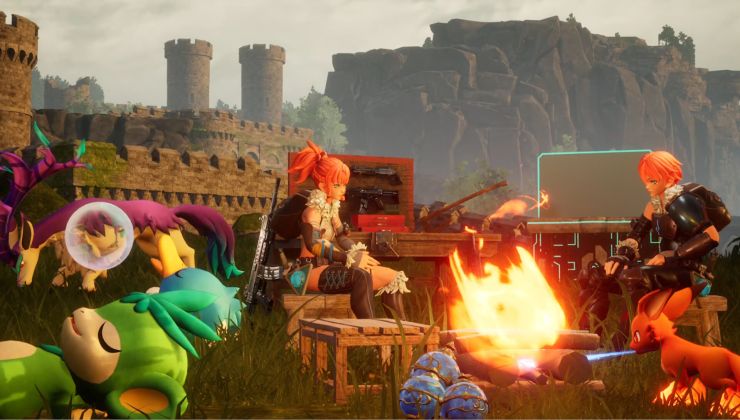
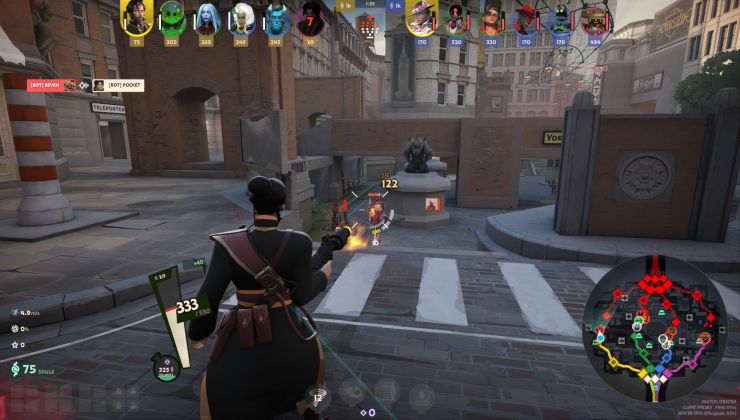
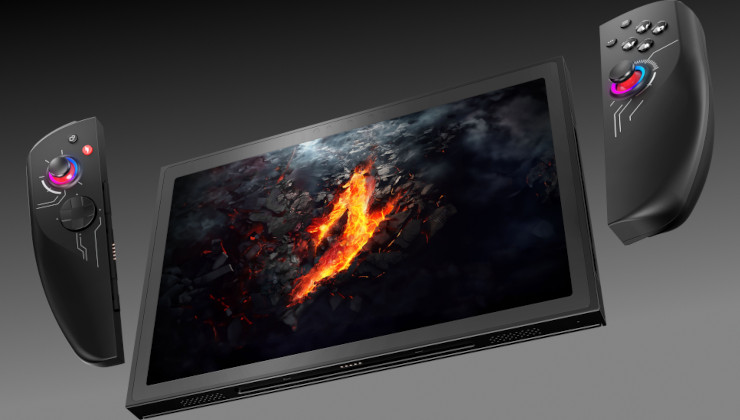
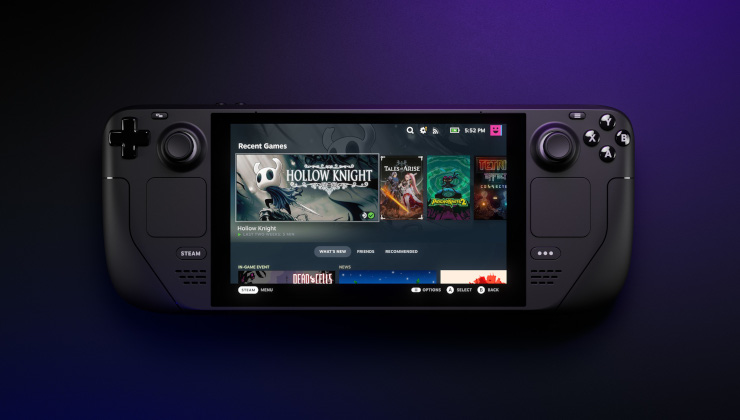





 An idiots guide to setting up Minecraft on Steam Deck / SteamOS with controller support
An idiots guide to setting up Minecraft on Steam Deck / SteamOS with controller support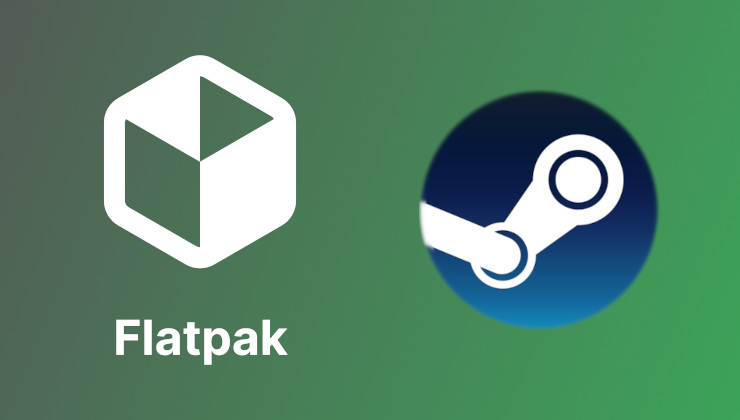 How to install extra software, apps and games on SteamOS and Steam Deck
How to install extra software, apps and games on SteamOS and Steam Deck
See more from me